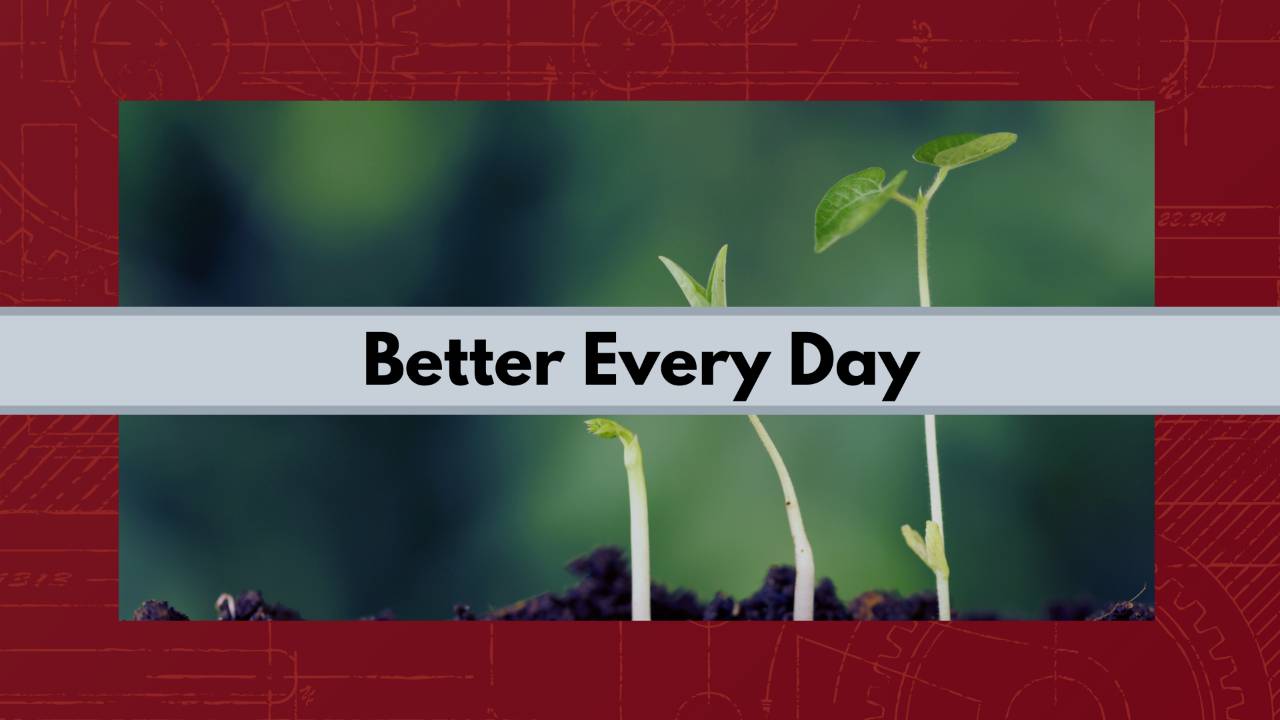Better Every Day
Your 52-Week Journey for Peak Performance
Whether you're an entrepreneur, an artist, a student, or someone just passionate about lifelong learning and self-improvement, "Better Every Day" is curated to fuel your fire. If you believe in the power of consistency and value the gratification that comes from personal growth, this journey is for you.
|
In today's world, where it feels like we're all moving at a hundred miles an hour, there's something we're missing more than we realize: genuine connection. It's a bit alarming, really. Did you know that in 2021, more than a third of Americans reported feeling “serious loneliness”? That's a huge number of us feeling isolated in a world that's more connected than ever. So, let's talk about something really important yet often overlooked: belonging. This article isn't just a bunch of facts and figures; it's a deep dive into why feeling like you belong isn't just nice to have, but absolutely essential for our mental, physical, and emotional health. We're going to explore some eye-opening research, including the longest study on adult life ever done, to really understand why being connected means so much more than just having people around.
The Power of Belonging
Belonging isn't just a feel-good factor; it's a fundamental human need. We are inherently social creatures, wired for connection. This need for belonging plays a pivotal role in our overall happiness and health.
One of the most compelling pieces of evidence about the importance of belonging comes from the Harvard Study of Adult Development, which began in 1938. This longitudinal study followed 724 men for over 75 years, making it the longest study of adult life ever conducted (Harvard Second Generation Study, n.d.).
The participants, from diverse backgrounds, were meticulously observed through questionnaires, interviews, medical records, and even bloodwork. The findings were groundbreaking. The researchers concluded that strong relationships are key to leading a happy and healthy life. Those who were more socially connected to family, friends, and community were found to be happier, physically healthier, and lived longer than their less-connected counterparts (Waldinger, 2015).
Interestingly, it's not the number of friends or social connections that matter but the quality of these relationships. The study revealed that individuals who were most satisfied in their relationships at age 50 were the healthiest at age 80. This highlights the importance of nurturing deep, meaningful connections over having a wide network of acquaintances.
Belonging also isn't just crucial for well-being; it's also essential for achieving peak performance and accessing a state of flow. When we feel a sense of belonging, we're more likely to be in an environment that supports and encourages our best work, allowing us to fully immerse ourselves in tasks with focus and creativity. This sense of connection and support fosters psychological safety, which is crucial for taking risks and pushing boundaries, essential components for peak performance. In essence, belonging doesn't just nourish our emotional needs; it sets the stage for us to excel and achieve our most ambitious goals.
So how do we increase our sense of belonging?
There are several actions you can take. The first is to assess and then build your support network. In this initial assessment, consider three areas of support:
- Emotional Support: Identify who in your life provides empathy, affection, love, and encouragement.
- Informational Support: Recognize those you turn to for advice and guidance.
- Companionship Support: Acknowledge who shares your interests and activities.
Another way to view these relationships is through these three different levels.
- Contact: Acquaintances or people you know.
- Connection: Relationships that are deeper than mere acquaintances.
- Belonging: The deepest level, characterized by a sense of acceptance and inclusion.
Reflect on these relationships and consider actions to deepen these connections or establish new ones. This is not just about identifying support but also about actively engaging in building a community where you feel you belong.
Enhancing Your Sense of Belonging
To increase your sense of belonging, be intentional in your interactions. Seek out and nurture relationships where you feel valued and accepted. Participate in communities or groups that align with your interests and values. Remember, belonging is a two-way street; it's about being there for others as much as it is about them being there for you.
I hope that you are now bought into the fact that belonging is not just a luxury; it's a critical component of our well-being and a key factor in achieving peak performance. By understanding the importance of belonging and taking active steps to cultivate meaningful relationships, we can enhance our mental, physical, and emotional health, paving the way for a more fulfilled and flourishing life. I will end this article with my favorite African proverb that beautifully encapsulates this idea. It is, "If you want to go fast, go alone. If you want to go far, go together."
References
Harvard Second Generation Study. (n.d.). The Study. Retrieved from Harvard Study of Adult Development .
Waldinger, R. (2015). What makes a good life? Lessons from the longest study on happiness. TED Talk. Retrieved from [TED website]
Key Actions:

Assess Your Support Network
Assess and strengthen your sense of belonging by identifying key individuals in your life who provide emotional support, offer informational support, and share in your interests and activities.

Be Intentional in Your Interactions
Seek out and nurture relationships where you feel valued and accepted. Participate in communities or groups that align with your interests and values. Remember, belonging is a two-way street; it's about being there for others as much as it is about them being there for you.

Volunteer for a Cause You Care About
Engaging in volunteer work for causes that are important to you not only allows you to contribute to the community but also connects you with others who share your values and passions, enhancing your sense of belonging and purpose.
Coaching
Individual and Group Coaching
Looking for an individualized approach or a higher level of accountability to increase your chances of a successful outcome? Schedule a call and learn more about our coaching programs with doctoral-level coaches who have specialized knowledge in neuroscience, the psychology of performance, and decades of experience.
Schedule Free Call
Not a member of the 'Better Every Day' program?
Join our FREE 52-week program where we will send you exclusive content and training delivered to your inbox each week.
Get Started Now!!



